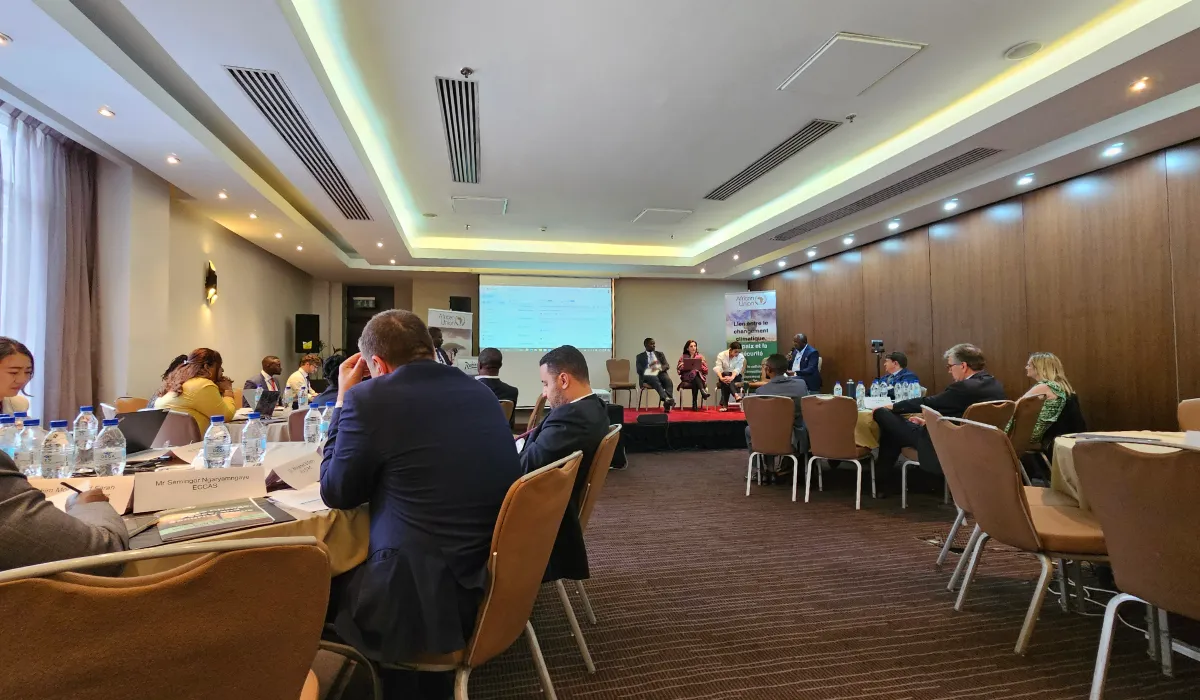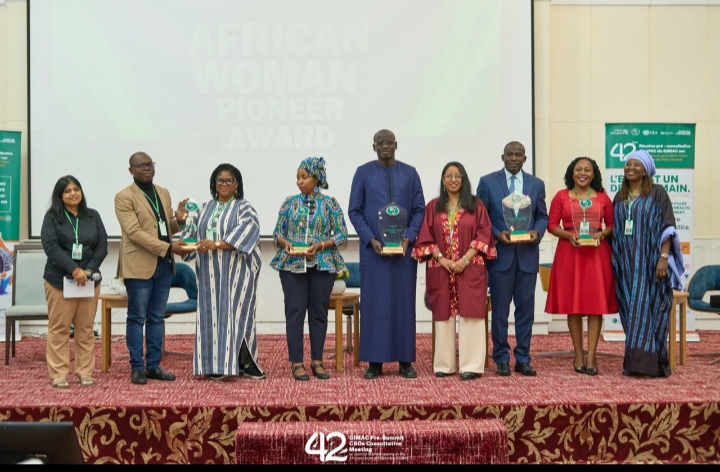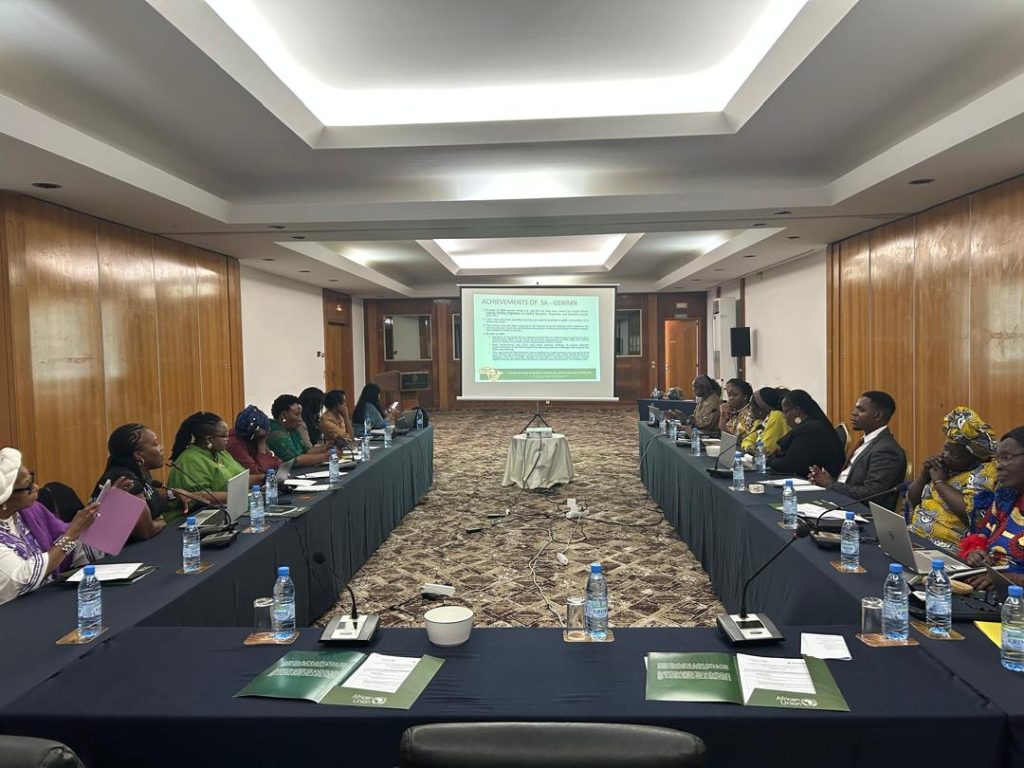ACCORD attended the African Union (AU) Interdepartmental Retreat on the Climate Change, Peace, and Security Nexus that took place in Addis Ababa, Ethiopia from 9 to 11 May 2024. The retreat was hosted in partnership with United Nations Development Programme (UNDP), the International Organisation for Migration (IOM), the United Nations Office to the African Union (UNOAU), the Institute for Peace and Security Studies (IPSS), Adelphi, the Cairo International Centre for Conflict Resolution, Peacekeeping and Peacebuilding in Africa (CCCPA), the African Risk Capacity (ARC), the Stockholm International Peace and Research Institution (SIPRI), CGIAR, GIZ/AU, EU/AU, and the Embassies of Ireland, Switzerland, Norway and the United Kingdom.
The retreat aimed to foster collaboration among different AU departments in developing an approach to address climate change, peace, and security in Africa. The challenges faced are often interconnected and require a united and cohesive approach, thus the need for a Common African Position (CAP) on climate, peace and security needs to be developed. Responses need to address the vulnerabilities and risks that exist due to climate change. Furthermore, these responses need to include climate adaptation, resilience building, mitigation, early warning and early response, disaster preparedness and reduction, and climate financing.
The workshop in Addis Ababa was one of the first steps towards fostering the interdepartmental cooperation needed in the AU. The workshop also discussed the timeline laid out for the AU to follow when developing the CAP and the methodology that will be used. In addition, the workshop considered some regional case studies and regional approaches that detail their responses to climate change and the challenges that they have faced. Finally, the workshop discussed some of the key considerations to keep in mind when developing the common position.
ACCORD will continue to investigate and monitor the effects that climate change has on conflicts in Africa, and support the AU and regional economic communities develop their approaches to address these challenges.








